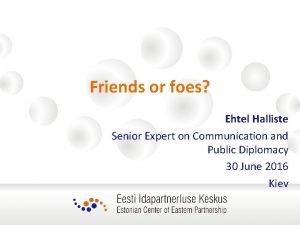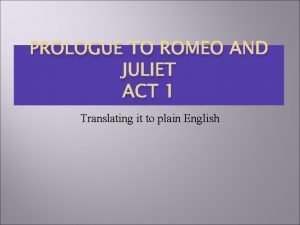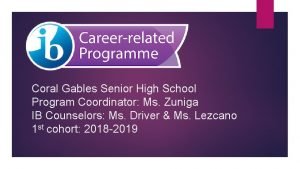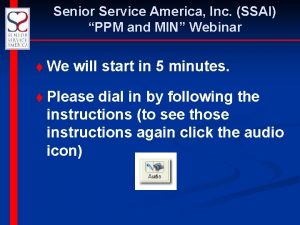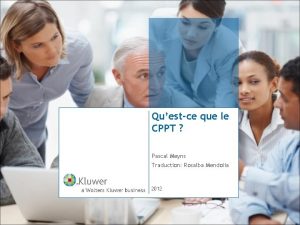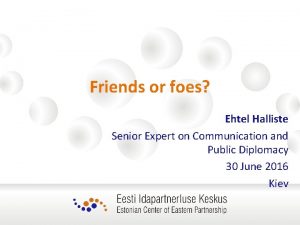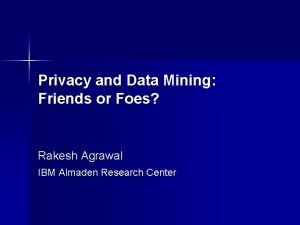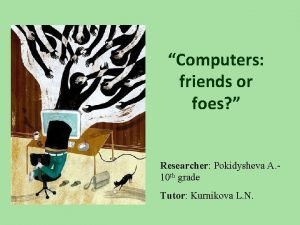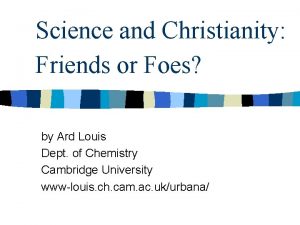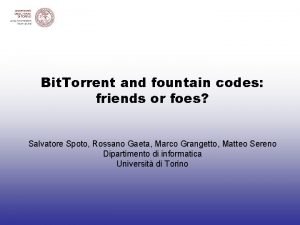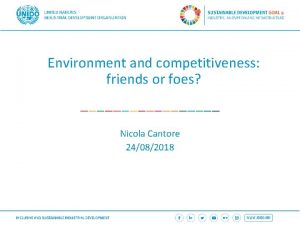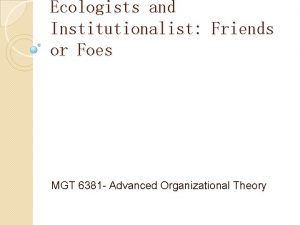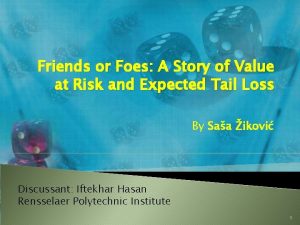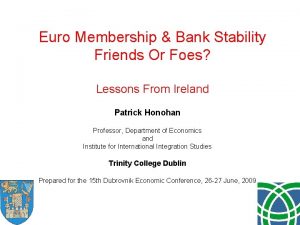Friends or foes Ehtel Halliste Senior Expert on













- Slides: 13

Friends or foes? Ehtel Halliste Senior Expert on Communication and Public Diplomacy 30 June 2016 Kiev

Communicating reforms • One of the most important components of the European Union and NATO integration process • Domestic audience wants to know what reforms are planned – What changes to expect – How the changes affect their daily lives • Serious challenge – To build support to government activities – Requires great effort on the part of the communicators and civil servants

Communicating reforms (2) Difference between • Building support to Government initiatives/reforms – Messages more general/simple – Trying to influence people’s attitudes • Informing people about the implications of reforms on their daily lives – Detailed information – Instructions what to do

Communicating reforms (3) • Practice of systematically applying the processes, strategies, and principles of communication to bring about positive social change • Convincing people that reforms will benefit them • Main contribution – Influence the opinions, attitudes and ultimately the behaviour of people – All reforms require behaviour change

Which one? f

Why media? • It gets your message across to a wider audience – Information in the media will spread the story further than it could be spread without media coverage • It provides free publicity and exposure for not only news, announcement, event or request – but for the organisation as well • Watchdog

What media thinks of PR people • That they are stuck in a rut of diplomacy, bureaucracy and organisational jargon BUT • They realise that we are necessary • There is information to get • Reluctantly admit there is no better alternative • Expects to be informed not only about boring things but also about issus that matter • Expects to be informed in timely manner

Relationship with journalists • Complex and ambigious • Cooperation and conflict • It is a negotiation between two partners who participate in an exchange for benefit in spite of their diverging interests INTERDEPENDENT • PR people want to reach audiences • Journalists need sources Mutual interest in collaboration

How to handle the media • Just like other diplomatic/business relationships • Build relationships • Establish a reputation as no-nonsense, solid and credible partner • Know the outlets and journalists • Research • Adapt your information to journalistic requirements • Know the deadlines, etc. • If you want coverage, make news

What to do • Maintain a constant flow of information BUT • Avoid information overload • Think of issues that might be of interest BUT • Avoid spin • Use a clear, no-nonsense language BUT • Avoid over simplification • Explain, explain

What not to do • Do not see media as the enemy • You need them as much as they need you • They are just doing their job and act accordingly – Sometimes well – Sometimes not so well – Sometimes they don’t quite manage • No double standards • Be clear - what is your role and responsibilities • No bureaucratic jargon

Do not avoid journalists • Avoidance jeopardizes the relationship • Avoidance brings along difficulties – Damages future relations – At times of crises, media may interpret avoidance as a form of admission and therefore as news • Avoidance is an approach when alternative means are feasible – Most of the time there are not

? THANK YOU! www. eceap. eu www. facebook. com/eceap
 Ehtel halliste
Ehtel halliste Two house holds both alike in dignity
Two house holds both alike in dignity Spiderman foes
Spiderman foes Dfccil work profile
Dfccil work profile Little friends may prove great friends meaning
Little friends may prove great friends meaning Senior citizen
Senior citizen Gibbs high school wrestling
Gibbs high school wrestling On my honor i promise to do my best
On my honor i promise to do my best Senior reflection examples
Senior reflection examples Coral gables senior high
Coral gables senior high Akfi rules book
Akfi rules book Ee senior design project ideas
Ee senior design project ideas Ppm north america inc
Ppm north america inc Senior citizen traduction
Senior citizen traduction
